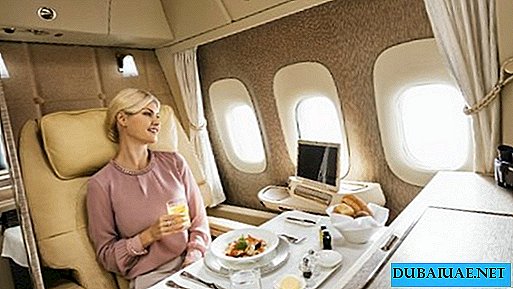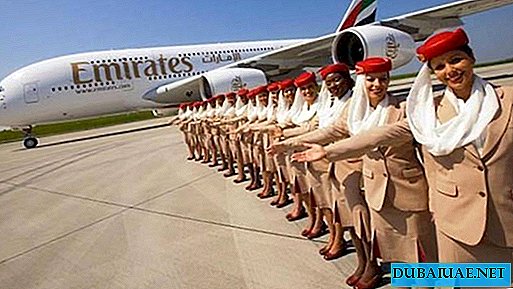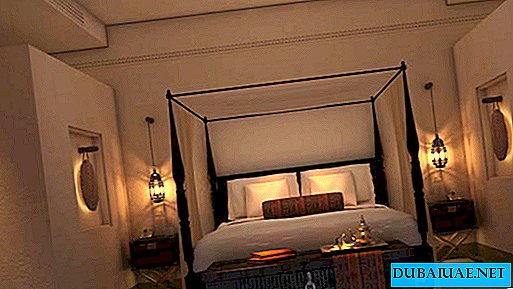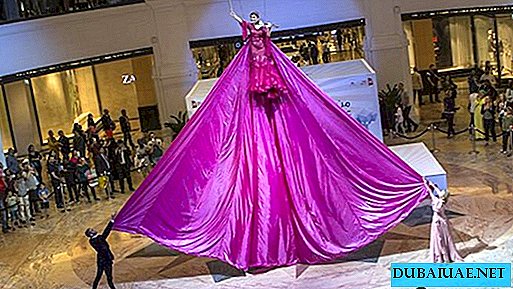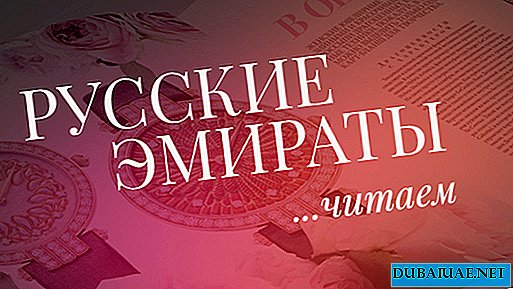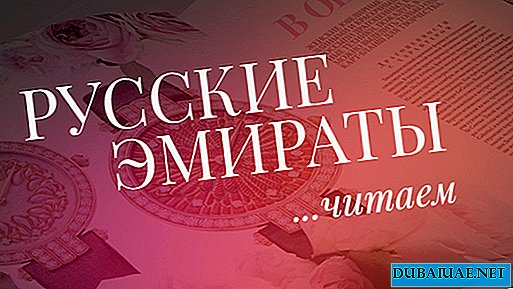Text: Victor Lebedev
 Viktor Lebedev, an oriental journalist, has worked as an ITAR-TASS correspondent for over thirty years in various Arab countries - Syria, Egypt, Sudan, Tunisia, Yemen. Almost half of this term lives and works in the United Arab Emirates. Victor Lebedev is the author of the book “World of the Emirates” from the series “Arabian Arabesques”, the first winner of the International Prize named after journalist-orientalist Viktor Posuvalyuk. The permanent author of many country-specific materials published in our journal, Viktor Lebedev is also a literary translator of the verses of the UAE Vice President and Prime Minister, ruler of Dubai, Sheikh Mohammed bin Rashid Al Maktoum. Poems for the Russian edition were personally selected by the high-ranking poet himself.
Viktor Lebedev, an oriental journalist, has worked as an ITAR-TASS correspondent for over thirty years in various Arab countries - Syria, Egypt, Sudan, Tunisia, Yemen. Almost half of this term lives and works in the United Arab Emirates. Victor Lebedev is the author of the book “World of the Emirates” from the series “Arabian Arabesques”, the first winner of the International Prize named after journalist-orientalist Viktor Posuvalyuk. The permanent author of many country-specific materials published in our journal, Viktor Lebedev is also a literary translator of the verses of the UAE Vice President and Prime Minister, ruler of Dubai, Sheikh Mohammed bin Rashid Al Maktoum. Poems for the Russian edition were personally selected by the high-ranking poet himself.
For the sixth time, without the founder of the emirate state, Sheikh Zayed bin Sultan Al Nahyan, residents of the country celebrate this year the feast of the creation of the UAE based on the unification of the seven emirates of the western Persian Gulf.
The state, composed of the emirates of Abu Dhabi, Dubai, Sharjah, Ajman, Ras al-Khaimah, Umm al-Quwain and Al-Fujairah, was created on December 2, 1971, and for 33 years it was invariably led by the ruler of the emirate of Abu Dhabi, Sheikh Zayed .
The great emirate lived a long life full of grandiose accomplishments, and died in early November 2004, leaving his countrymen a beautiful country, where skyscrapers flashed with glass from the salty sands burnt by the sun, first-class roads were laid, and unseen hotels in the world with halls filled with skies coffee aroma, metro line went along the Bedouin path, forests grew. He “stepped off a horse,” as the local press wrote figuratively, when a new generation of emirates grew up in a new country that replaced illiteracy, replacing the old Bedouins, munching toothless mouths with the traditional food of nomads - fresh gray cakes with dates, washing them down camel milk and polishing with bitter Arabic coffee.
Arabic coffee
All emirate feasts are accompanied by coffee drinking. The coffee here is special. Coffee beans are crushed together with the peel, very tightly brewed with cardamom, often with other spices, they drink without sugar, more often with dates. Coffee is the country's main everyday and festive drink. With this drink, Emirates usually meet their guests.
 On a national holiday, many coffee cups will be knocked over. Some sheikhs who have participated in the dinners of Sheikh Zayed for decades, as well as the families of his 19 sons, numerous daughters and other relatives, will drink coffee according to the recipes of the founder of the UAE.
On a national holiday, many coffee cups will be knocked over. Some sheikhs who have participated in the dinners of Sheikh Zayed for decades, as well as the families of his 19 sons, numerous daughters and other relatives, will drink coffee according to the recipes of the founder of the UAE.
The first leader of the emirate state, according to his staff, did not like tea. It was replaced by other drinks. He also did not like sugar and did not use it in any drinks or dishes, preferring dates as a sweetener, since there are dozens of varieties of these “desert sweets” in the Emirates.
The main drink of the day in the salons of presidential palaces has always been coffee. Ismail al-Balyushi, who devoted his whole life to making coffee, who worked for 8 years with the brother of Sheikh Zayed Sheikh Khaled bin Sultan in the city of Al Ain, then with the other brother of Sheikh Mubarak and more than 20 years in the palaces of Sheikh Zayed, says that his lord preferred Ceylon coffee, considering that it is better than Brazilian and Yemeni, only requires special preparation. He instructed coffee drinkers, taught them to dry the washed coffee in the sun for one to two days, and recommended roasting it in a skillet until black until the kitchen was filled with a spicy coffee aroma. After calcination, the grains should be crushed and passed through a coffee grinder. In younger years, the ruler of Abu Dhabi liked to add cardamom to coffee, but with age, doctors advised him to do this, saving his heart.
"We added cloves to coffee," says Ismail alBalyushi. - “Sheikh Zayed advised that there should be no more than 3 pistils on the jug -“ dully. ”Put a little saffron. Sheikh Zayed always asked what additives are in the coffee? - They answered: cloves and saffron. Sometimes he asked to add a cup of Iranian rose water on coffee dulla. When served such coffee, he said: "Gahua Zeena" (good coffee), continue in the same spirit, do not change anything. "
Sheikh Zayed also had a special coffee recipe. The palace service staff called the coffee according to this recipe "seven" because it was made from seven components. In addition to coffee, cardamom, saffron, cinnamon, ginger, rose water and helba were added to the drink. Sometimes used and the eighth element - nutmeg. As for the helba, we will dwell on it later, when it comes to other favorite drinks of the late founder of the emirate state.
Whenever one of the new waiters put on coffee changed the method of preparation, the sheikh immediately noticed a discrepancy with his taste and conducted a new briefing for his servants. The manner of serving, according to the chief presidential traditional waiter, who was delivering coffee in the president’s salon every other day, in turn with another employee of the yard, was as follows.
 Upon arrival at the hall where the guests were, one should say hello and have cups so that the "sleeping people would wake up," as Sheikh Zayed said. First, they served coffee to the president, then the rest of the sheikhs with whom he talked about business over coffee, exchanged opinions, talked about future plans, solved intertribal problems, and discussed family ties and marriage ties. Poured coffee, lifting the jug from the cup up, creating the effect of a waterfall, spreading in the presence of coffee aroma. Before pouring coffee through a strainer made from the fibers of palm leaves, the next sheikh hit the jug with a cup to shake off drops that should not have fallen on the floor.
Upon arrival at the hall where the guests were, one should say hello and have cups so that the "sleeping people would wake up," as Sheikh Zayed said. First, they served coffee to the president, then the rest of the sheikhs with whom he talked about business over coffee, exchanged opinions, talked about future plans, solved intertribal problems, and discussed family ties and marriage ties. Poured coffee, lifting the jug from the cup up, creating the effect of a waterfall, spreading in the presence of coffee aroma. Before pouring coffee through a strainer made from the fibers of palm leaves, the next sheikh hit the jug with a cup to shake off drops that should not have fallen on the floor.
Sheikh Zayed loved a special jug, the so-called "gazal". He always drank from a large cup, which was supposed to be filled by a third, no more and no less. Ismail alBalyushi admits that he still keeps at home as a dear memory two jugs from those in which sheikh Zayed prepared and served coffee, and several cups from which he drank.
The coffee vendor recalls that the Emirate president is very kind, fatherly to the staff who served him, he was always calm, attentive, not malign at any time of the day. He was censured for being late without heart stress, made warnings in an even tone, and treated the servant like children. The palace staff came to work immediately after dawn prayer. Chefs prepared breakfast at 6 o’clock. Brewed coffee, boiled or prepared milk and other drinks. Sheikh Zayed said: do not delay breakfast, he should be ready by 6 o’clock and stand on tables until 8 o’clock. He ordered me to clean everything from the tables after 8 in the morning. The inhabitants and visitors of the palace, who did not come to the salon from 6 to 8, did not have the right to breakfast.
The coffee feeder worked with Sheikh Zayed in the Manhal Palace, then in Al-Batyn Palace, where Sheikh Hamdan bin Zayed is now located, then moved to the Sea Palace on the Cape Verde on the edge of the island, where, according to the speculations of the capital's inhabitants, it’s being built in the now closed small open public beach a new palace for the Crown Prince of Abu Dhabi, Sheikh Mohammed bin Zayed.
Now this part of the island, where the chic Emirates Palace Hotel is located, and the Khaldia Hotel, which was previously popular among Russian tourists and business travelers, where the new Rotana hotel complex has grown, is being completely reconstructed. During the period when Sheikh Zayed moved to the Sea Palace, Ismail al-Balyushi recalls, his territory was still flooded with sea tides and broke February storms. Only later was the ground level raised due to the washed sand and trees, including mango trees, were planted. Sheikh Zayed, who devoted his whole life to landscaping the country, personally participated in the plantings.
Mysterious Helba
After coffee, Sheikh Zayed usually asked for camel milk with helba. “We boiled helba every night and insisted in special vessels. In the morning we put a jug of coffee, a container of milk with helba, thyme and cinnamon infusion in the cabin. On the recommendation of the president, we added a cup of helba infusion, a cup of ginger, a cup of honey to the two-liter container of camel milk. These drinks were also served to the guests. The owner of the palace was interested in the servant: “Which of the guests didn’t drink?” On occasion, addressing the audience, he said: “Drink, it’s good.” He was served several times until he was full. Sheikh Zayed said that helba, ginger, cinnamon and m d protect people from many illnesses.
Now, perhaps, it’s time to talk about the Helba, a small bean cultivated plant that we call camel or Greek hay, hay fenugreek, shambhala in Russia and use the Arabic word, spoken in Central Asia, probably through Central Asia. local emirate dialect as "hulba". A tea-like beverage with a chocolate aroma and vanilla flavor is prepared from the helba.
Helba is not brewed, but boiled for 7-10 minutes. One teaspoon of tea leaves is enough for a glass of water. They drink helba warm, adding sugar or honey, ginger, lemon to taste. A drink diluted with milk becomes even tastier. It warms, soothes nerves, relaxes, protects against colds. Helba seeds can be eaten, they improve the functioning of the stomach. Sheikh Zayed loved to take Helba in the morning.
At sunset, he always drank milk with honey. I drank two or three glasses. In the evening, on the table in his room they always put a tray with a jug of coffee, a jug of milk with ginger, sometimes a jug of cinnamon and a few glasses and cups. Arriving in the morning, they often found a tray with clean dishes under the door. The president himself washed her.
President's meal
 Sheikh Zayed’s breakfast consisted of bread cakes and eggs, dates cooked with cream and starch (habis), and yeast bread (hamir). He did not like beans and taamia (falyafil). There was always milk and honey on his desk. Dinner usually consisted of rice, biryani and fried meat, while the whole carcass of the fried animal was served. But he didn’t eat much meat. Loved fish and chicken dishes. The great emirate brought up by the desert was not pretentious in food. I ate various types of local bread. Hamir was always served on the table, into the dough of which eggs, caraway seeds, sesame seeds, dill are added; "makhlya" yeast bread, which is baked with the addition of dates, eggs, saffron, pink water, frying until brown; "dzhab" without yeast, baked from ordinary flour using eggs, cardamom and saffron, and the most famous, known among the Arabs since ancient times, "rukak", especially popular during ramadan, similar in its recipe to "makhla", but baked without oil. He loved the turkey on meat broth using "makhli" and "rukak". Of the local dining dishes, he preferred “balalit”, which is a mixture of fried and boiled vermicelli seasoned with egg, saffron and cardamom, as well as “habis” - a dessert similar to marmalade made from dates with fat, rice or wheat, flavored with cream and starch. When cooking, fats were used. Dates were present in all kinds of his food.
Sheikh Zayed’s breakfast consisted of bread cakes and eggs, dates cooked with cream and starch (habis), and yeast bread (hamir). He did not like beans and taamia (falyafil). There was always milk and honey on his desk. Dinner usually consisted of rice, biryani and fried meat, while the whole carcass of the fried animal was served. But he didn’t eat much meat. Loved fish and chicken dishes. The great emirate brought up by the desert was not pretentious in food. I ate various types of local bread. Hamir was always served on the table, into the dough of which eggs, caraway seeds, sesame seeds, dill are added; "makhlya" yeast bread, which is baked with the addition of dates, eggs, saffron, pink water, frying until brown; "dzhab" without yeast, baked from ordinary flour using eggs, cardamom and saffron, and the most famous, known among the Arabs since ancient times, "rukak", especially popular during ramadan, similar in its recipe to "makhla", but baked without oil. He loved the turkey on meat broth using "makhli" and "rukak". Of the local dining dishes, he preferred “balalit”, which is a mixture of fried and boiled vermicelli seasoned with egg, saffron and cardamom, as well as “habis” - a dessert similar to marmalade made from dates with fat, rice or wheat, flavored with cream and starch. When cooking, fats were used. Dates were present in all kinds of his food.
Sheikh Zayed did not like to eat alone. His dinners were light. He ordered all food left over from dinners to be distributed to those in need in mosques near the palace. He did this even during a visit to China, where he recommended searching for mosques and delivering the remaining food about him. He did the same in Switzerland. In the capital of the alpine country, he loved the Iranian restaurant on the lake. Dozens of packages of bread were bought there and fed to waterfowl. Many of his entourage still do this. “Sometimes he would sit us at his table, including during hunting activities abroad. He would invite locals to meals,” says Ismail al-Balyushi.
Some of the president’s favorite breads and dishes, according to the local press, can be found in selected restaurants in the Hamriya district of Dubai, in the traditional village of ethnographic heritage in Shindag and on the Friday Dubai market, where representatives of the “third age” wrapped in black blankets briskly offer national treats, cooked according to old family recipes.
“Before sheikh died, Sheikh Zayed didn’t go to the salon for several days. Sheikhs didn’t come to him. No one took food trays. Then we were told that Sheikh Zayed moved to another world. We didn’t eat or drink for several days,” faithful servant.
Then the president’s wife Sheikh Fatma ordered, according to al-Balyusha, that he go to work for the son of Sheikh Zayed Sheikh Mansur, who now heads the ministry for presidency.
The great emirate was gone. The traditions established by him of joint coffee drinking with sheikhs and collective meals in a family setting are preserved. But they have a different atmosphere. A generous fatherly soul left the presidential salons, preserving traditions and embodying the aspirations of the native people, overshadowing the life of the fellow tribesmen of Sheikh Zayed, whom we now, thanks to him, call the Emirates.



